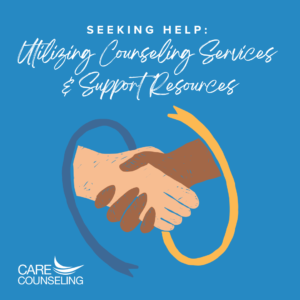Navigating Counseling Services and Support Resources
 College life is a period of exciting possibilities, personal growth, and academic exploration. However, it can also bring about various challenges and stresses that may impact your mental health and overall well-being. The good news is that you don’t have to navigate these challenges alone. Colleges and universities provide valuable counseling services and support resources designed to help students address their mental health concerns and enhance their overall college experience.
College life is a period of exciting possibilities, personal growth, and academic exploration. However, it can also bring about various challenges and stresses that may impact your mental health and overall well-being. The good news is that you don’t have to navigate these challenges alone. Colleges and universities provide valuable counseling services and support resources designed to help students address their mental health concerns and enhance their overall college experience.
Recognizing the Importance of Mental Health
Your mental health is just as important as your physical well-being. In fact, they often go hand in hand. Stressors related to academics, relationships, life transitions, and personal challenges can affect your mental state. Ignoring these challenges can lead to worsening conditions and negatively impact your academic performance and overall quality of life.
Understanding Counseling Services
Most colleges and universities offer counseling services that provide professional guidance, support, and a safe space for students to discuss their concerns. These services are staffed by trained mental health professionals, including counselors, psychologists, and social workers. Counseling sessions offer a confidential and non-judgmental environment where you can explore your thoughts, feelings, and challenges.
When to Seek Counseling Services
You might consider seeking counseling services if you’re experiencing:
– Intense stress or anxiety
– Persistent sadness or depression
– Relationship issues
– Academic difficulties
– Loneliness or isolation
– Grief or loss
– Substance abuse concerns
– Trauma or past experiences impacting your well-being
How to Access Counseling Services?
Accessing counseling services is often straightforward:
1.Research:
Familiarize yourself with the counseling services available on your campus. Visit the counseling center’s website, read brochures, and attend information sessions to understand what they offer.
- Contact:
Reach out to the counseling center. They might offer walk-in hours or appointments that you can schedule over the phone or online.
- Initial Assessment:
During your first appointment, you’ll likely have an initial assessment where you’ll discuss your concerns and goals with a counselor. This helps them understand how they can best support you.
- Collaborative Planning:
Based on your assessment, you and the counselor will develop a plan for your counseling journey. This might involve regular sessions, group therapy, workshops, or referrals to other resources.
Exploring Support Resources
Counseling services are just one part of the support network available to you:
1.Support Groups:
Many campuses offer support groups where you can connect with peers facing similar challenges. These groups provide a sense of community and understanding.
- Workshops and Seminars:
Check if your campus hosts workshops or seminars related to mental health, stress management, mindfulness, or other well-being topics.
- Online Resources:
Some schools provide online resources, including self-help articles, videos, and interactive tools that can help you manage stress and enhance your mental well-being.
- Peer Advisors:
Some universities have peer advisors or mentors who can guide you through your college journey and offer valuable insights.
- Campus Wellness Programs:
Look into campus wellness programs that promote overall well-being through physical fitness, nutrition, and mental health education.
Overcoming Barriers to Seeking Help
It’s common to encounter barriers when considering seeking help for your mental health. Some of these barriers include:
– Stigma: Fear of being judged or labeled for seeking help.
– Denial: Believing that you can manage your challenges on your own.
– Lack of Awareness: Not being aware of available resources.
– Time Constraints: Feeling too busy with academics or other commitments.
– Pride: Thinking that seeking help is a sign of weakness.
As a college student, taking care of your mental health is essential for your overall success and well-being. Utilizing counseling services and support resources available on your campus can make a significant positive impact on your life. Remember, seeking help is a sign of strength, not weakness. Whether you’re struggling with academic stress, personal challenges, or other issues, you don’t have to face them alone. Embrace the resources available to you and take proactive steps toward enhancing your mental health and making the most of your college experience. Your well-being matters, and by seeking help, you’re investing in a brighter, healthier future.



























